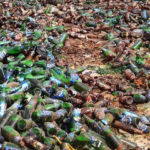A chieftain of the Peoples Democratic Party in Delta State, Chief Sunny Onuesoke, has called on the Federal Government to reject the World Bank’s recommendation to increase the pump price of premium motor spirit (petrol) to N750 per litre.
Addressing a press conference in his office in Warri, Delta State, on Saturday, Onuesoke expressed his concern over what he sees as undue influence by international institutions like the World Bank and IMF in determining Nigeria’s economic policies.
He criticized the World Bank and IMF, alleging that they have a history of not acting in the best interest of African countries.
According to Onuesoke, these institutions, during Muhammadu Buhari’s administration, advocated for the removal of fuel subsidy without providing a concrete substitute, such as a functional refinery, to mitigate the impact on the masses.
“The World Bank and the IMF have never meant well for any African countries. It’s this same World Bank, during Muhammadu Buhari’s administration, that kept on hammering that fuel subsidy must be removed when they know there is no concrete substitute (e.g refinery not working) to cushion its effects on the masses,” he stated.
Onuesoke accused the IMF of providing impractical advice to policymakers in African countries, suggesting measures like increasing taxes and devaluing currencies without considering the adverse effects on the citizens.
He pointed out that the previous fuel price increase during President Tinubu’s assumption of office has contributed to high inflation rates and increased hardship for the already struggling masses.
Warning against any attempt to implement the proposed fuel price hike, Onuesoke emphasized that it would make life unbearable for Nigerians.
He cautioned the World Bank and IMF to refrain from interfering in Nigerian economic policies and urged them to allow the country to implement policies that benefit its citizens.
Onuesoke urged the World Bank to focus not only on fixing benchmarks for fuel prices but also on minimum wage and other government social responsibilities, similar to practices in developed countries, if they are genuinely committed to improving living conditions for Nigerians.











